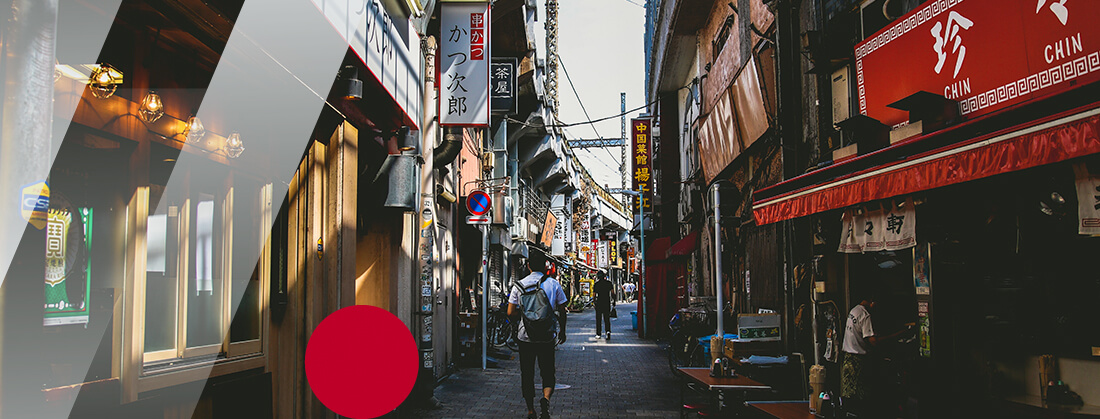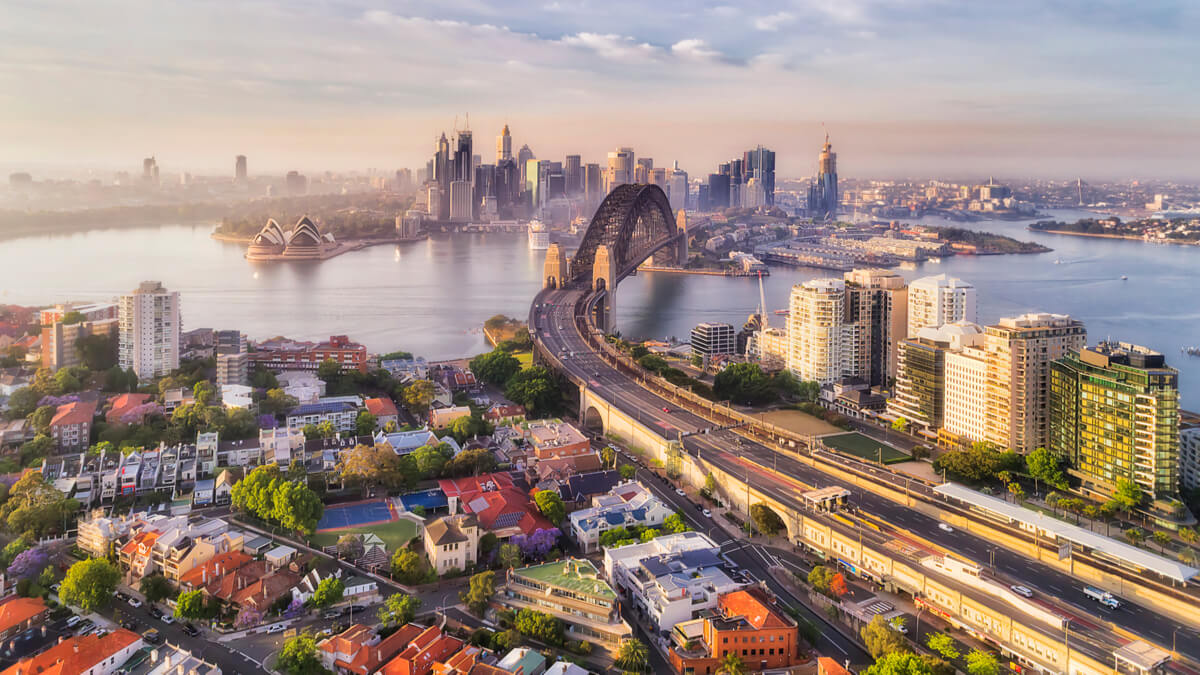Buying property in Australia as non-resident. What you need to know
Whether you’re considering moving to Australia and hope to buy a home or are interested in investing in the Australian property market while remaining...

Japan is an exciting place to visit. It’s also notoriously pricey, which can make the option of combining both work and holiday there an appealing one. A great way to do this is to get a working holiday visa, which lets you apply for work in certain fields while you’re travelling in Japan, to earn money and get more from your time there.
Working holiday visas are available to Australian citizens in the age range 18 to 30, subject to some eligibility requirements. If you’re thinking of heading to Japan, it’s well worth understanding the working holiday visa policy in advance of applying to check it’ll suit your needs. This article covers an overview of everything you need to know - including:
We will also touch on a great way to keep down the costs of your currency conversion and international payments while you travel - Wise. Getting a multi-currency borderless account could be a smart way to make your money go further while you travel around Japan, so you can do more and spend less. Let’s get started.
The Japanese government issue a range of visas to foreigners wishing to visit, study, or work in Japan. You may choose from¹:
Each visa comes with its own conditions and eligibility requirements. You’ll need to check out the details available on the website of the Japanese Embassy in Australia, or with your local Japanese Consulate, to find the one that’s right for you.
In this article, we’ll focus on working holiday visas, as a great way for younger Australian citizens to spend time exploring Japan.
A working holiday visa is issued under very specific circumstances, with strict eligibility criteria - this is covered in more detail below.
It helps to understand the purpose of working holiday visas, from the perspective of the governments issuing them. Working holiday visas are issued to encourage cultural exchange between countries, and get younger people to travel extensively and explore the area. Therefore, if you’re applying for a working holiday visa, your main purpose for travelling should be to explore the country, rather than work.
Giving visa holders the opportunity to work is intended only to open the opportunity to people who may not have the savings to cover their expenses for a full 6 to 12 months, and who need to do a small amount of paid work to subsidise their travel¹.
All that said, there is help available to find work which falls within the rules of the scheme. If you decide to find a job while you’re in Japan, you can visit HelloWork - the Japanese equivalent of a Centrelink - for advice and job search support. Some HelloWork offices have English speaking staff, and there are also some employment support centres specifically aimed at foreigners, in the larger cities¹.
It’s also helpful to know that Japanese working holiday visas are typically only issued for 6 months to start off with. You can then apply for a further 6 month extension, which may be offered at the immigration authorities’ discretion¹.
Working holidays are great, but they won’t suit everyone.
Working holiday visas are issued to people aged between 18 and 30 - and you can only apply for one working holiday visa for Japan, which will run for a maximum of 12 months. You can travel with a spouse or partner, but you can’t have dependents to care for during your visit. The work you can do in Japan also has some limitations. Here is what the Japanese Embassy says about the working conditions attached to the working holiday visa¹:
“1. To fully appreciate the many different aspects of Japan, it is advisable that the applicant moves to different areas within Japan every 3 months or so.
2. Work in nightclubs, bars and cabarets, dance halls, and Pachinko parlours, etc., is not permitted. The Act Controlling Business Affecting Public Morals (Fueiho), Article 2; Sections 1 and 4, specify these prohibited areas of work.”
A working holiday visa could be the perfect fit if you’re travelling flexibly, and plan to be away for 6 to 12 months. Although the classic image of a working holiday may be a backpacker picking up bar work as they travel, the working conditions imposed on the Japanese working holiday visa mean that bartending is out of the equation. Instead, you may decide to find seasonal or part time work, or offer specialist skills as you travel, such as project based consulting, design, programming or writing services.
If you match the eligibility criteria, and are able to be a bit creative about the work you’ll do when you arrive in Japan, a working holiday visa may be a good option for you.
To be eligible to apply for a Japanese working holiday visa you must fulfil the following criteria¹:
The terms and eligibility requirements of any visa type can change over time, so it’s a good idea to double check the most up to date information before you start your application.
You’ll need to apply for your working holiday visa at either the Japanese Embassy, based in Canberra, or at one of the Japanese Consulate General offices, which are in Sydney, Perth, Cairns, Brisbane and Melbourne. Check the application processes for each one, to see if you need to make an appointment to deliver your paperwork, or if you can just visit the office within working hours¹.
You’ll need to take along a suite of supporting documents, including¹:
The documentary requirements are fairly strict, and set out in full on the Japanese Embassy or Consulate website. Have a look at the complete details before you get started, to make sure you have all you need before attending the embassy to submit your application. It’s also good to know that you are unlikely to get your documents back, aside from your passport. Make sure you don’t hand over anything you’ll need at a later date.
There is no charge made by the Japanese Embassy for processing your working holiday visa application.
You can apply for your working holiday visa as much as a year in advance. You don’t have any option to fast track your application if you leave it late, so getting started early is a good plan.
Minimum processing time is a week, but you can expect it to take longer if there’s high demand, or if the embassy choose to request further documents or other evidence to support your application.
Life in Japan isn’t going to be cheap. Make sure your money goes further, and cut down on bank fees and currency conversion costs by getting yourself a multi-currency borderless account from Wise.
The borderless account is a perfect option for people who love to travel and explore the world. You’ll get your own local bank details to receive payments for free in Australian dollars, as well as US and New Zealand dollars, euros and British pounds, You can then hold your money in dozens of different currencies including Japanese yen, and check your balance across them at a glance using an app.
Whenever you need to you can switch between currencies using the google exchange rate, for just a low transparent fee. There are no exchange rate markups or hidden costs to worry about, which can make it much cheaper than using a regular bank. See if you can save money with Wise, today.
Sources:
All sources accurate as of 3 May 2019
*Please see terms of use and product availability for your region or visit Wise fees and pricing for the most up to date pricing and fee information.
This publication is provided for general information purposes and does not constitute legal, tax or other professional advice from Wise Payments Limited or its subsidiaries and its affiliates, and it is not intended as a substitute for obtaining advice from a financial advisor or any other professional.
We make no representations, warranties or guarantees, whether expressed or implied, that the content in the publication is accurate, complete or up to date.

Whether you’re considering moving to Australia and hope to buy a home or are interested in investing in the Australian property market while remaining...

Selling a property in Australia can be a complex process whether it's the first property or the tenth. Now imagine this process in a completely different...

Australia is a popular destination for many foreigners from around the world to move too. In particular, it is a popular place for citizens of France to move...

If you’re a Japanese expat looking to move to the Sydney area, you may be interested in looking for a Japanese school for your children. You may be keen for...

Many Australians look to emigrate at some point in their lives, and one of the most popular locations chosen is Hong Kong. With over 100,000 Australians...

Many Australians move to Singapore every year - in fact, as many as 20,000 Australian expats live in Singapore.¹ If you’re thinking of relocating to Singapore...